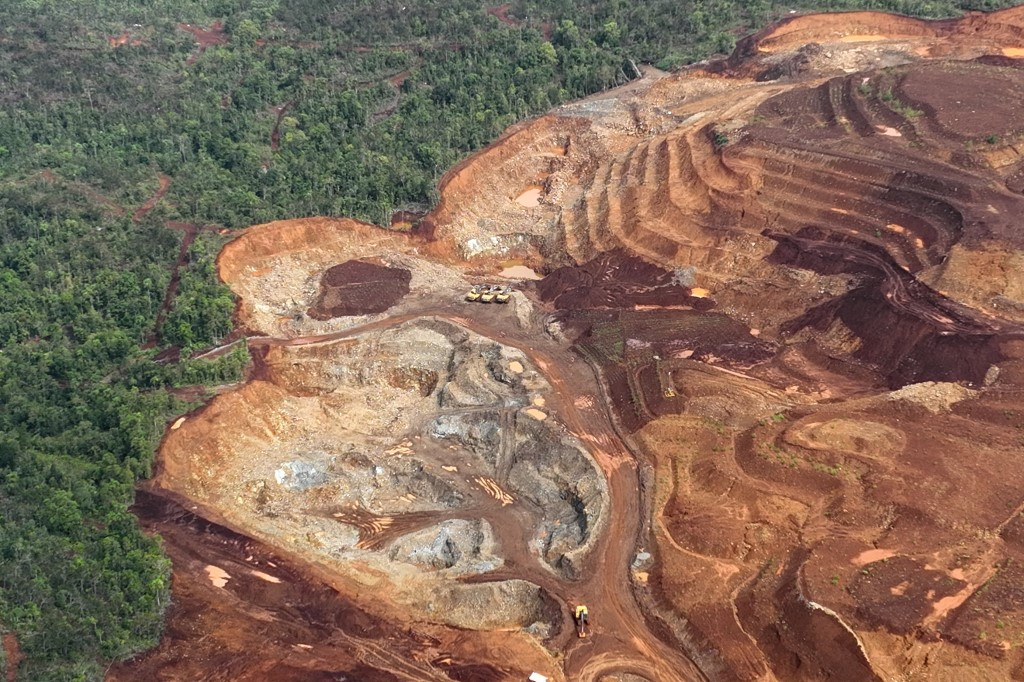Popular Reads
Top Results
Can't find what you're looking for?
View all search resultsPopular Reads
Top Results
Can't find what you're looking for?
View all search resultsMining and tourism don’t mix
Someone issued licenses for mining in a prime tourism region. What were they thinking?
Change text size
Gift Premium Articles
to Anyone
B
oth mining and tourism are vital for Indonesia’s economic development as each brings a lot of foreign exchange to the country.
The government will continue to court investment to both of those industries, and that is fine, as long as they stay out of each other’s way, because mining and tourism do not mix.
That has become painfully obvious in the upstart nickel mining operations in Papua’s Raja Ampat Islands, a sprawling archipelago of hundreds of islands and islets that stands out for their pristine natural beauty and immense biodiversity above and below sea level.
If not for the Greenpeace video that kicked off a heated nationwide debate across social and legacy media, five nickel mining projects in the regency in Southwest Papua would probably have continued apace.
Under pressure from environmental groups and the public, however, the government has revoked licenses for four of them, but not for the most advanced project on Gag Island.
Halting the four projects that have not yet launched commercial operations comes at little economic cost, but some may argue it is too late and legally complicated to stop the Gag Island one.
Whether that is true or not, one has to wonder how the projects got greenlit in the first place. Someone issued licenses for mining in a prime tourism region. What were they thinking?
Energy and Mineral Resources Minister Bahlil Lahadalia has defended the Gag Island project, arguing that, unlike with the other four projects, no rules had been violated. He also noted that “it produces 3 million [tonnes of nickel ore].”
Technically, the operations of PT Gag Nikel, a subsidiary of PT Aneka Tambang (Antam), lie outside of the Raja Ampat Geopark, perhaps because the geopark’s borders were drawn to exclude Gag Island.
However, it is doubtful that operations there would not affect the sensitive marine ecosystem of the wider area, which enjoys elevated environmental protection as a UNESCO-designated zone.
Clearly, there is a risk, and is it worth it for the extra 3 million wet tonnes of output, which amounts to only around 1 percent of the nationwide total?
In fact, the government has been eying a significant reduction in mine production quotas across the country to prevent oversupply and an erosion of global prices, given that Indonesia is the world’s largest nickel producer.
Raja Ampat would seem like a good place to begin.
While Gag Nikel plays a limited role in the overall scope of national mining operations, its potential risk to tourism in the region is serious.
Beyond the direct ecosystem risks, which could increase should the mine’s operations be expanded in the future, there is a reputational risk to the overall image of Raja Ampat, which stands out being relatively untouched when compared to the global tourism playground of Bali.
The last thing we need is another “Holidays in Hell” type article like the one published by Time magazine about Bali in 2011. While that one featured trash-filled beaches and congested roads, this one could shock would-be tourists with chopped-down trees and tainted waters.
Even if other parts of Raja Ampat remain unaffected, the diving destination’s reputation could take a hit from headlines about deforestation, mining and water pollution.
The bigger issue at play is that Indonesia may have overdone it a bit on the downstream side of the nickel industry, building so much processing capacity that we now rely on imports to feed the smelters.
The downstream development plans were drawn up at a time when nickel seemed almost indispensable in the battery industry and when global trade was relatively open.
Since then, technological changes have raised questions about nickel demand for the electric vehicle industry, while a worldwide trend of protectionism spells risks for both Indonesia’s ability to export processed nickel and to import nickel ore.
The government must very carefully assess trends of supply and demand before approving any new nickel processing projects.
As for Raja Ampat, ecological restoration could be great PR: From paradise lost to paradise saved.










